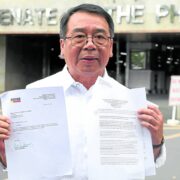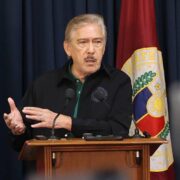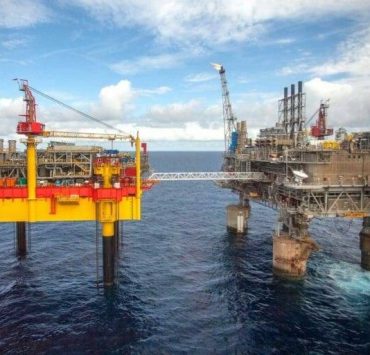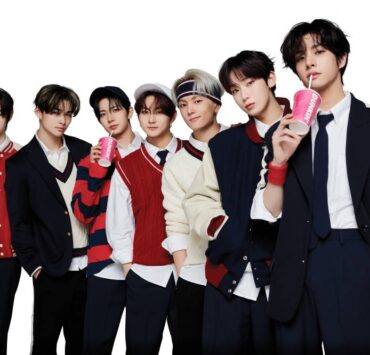Trump extends unprecedented invites to China’s Xi and other world leaders for his inauguration
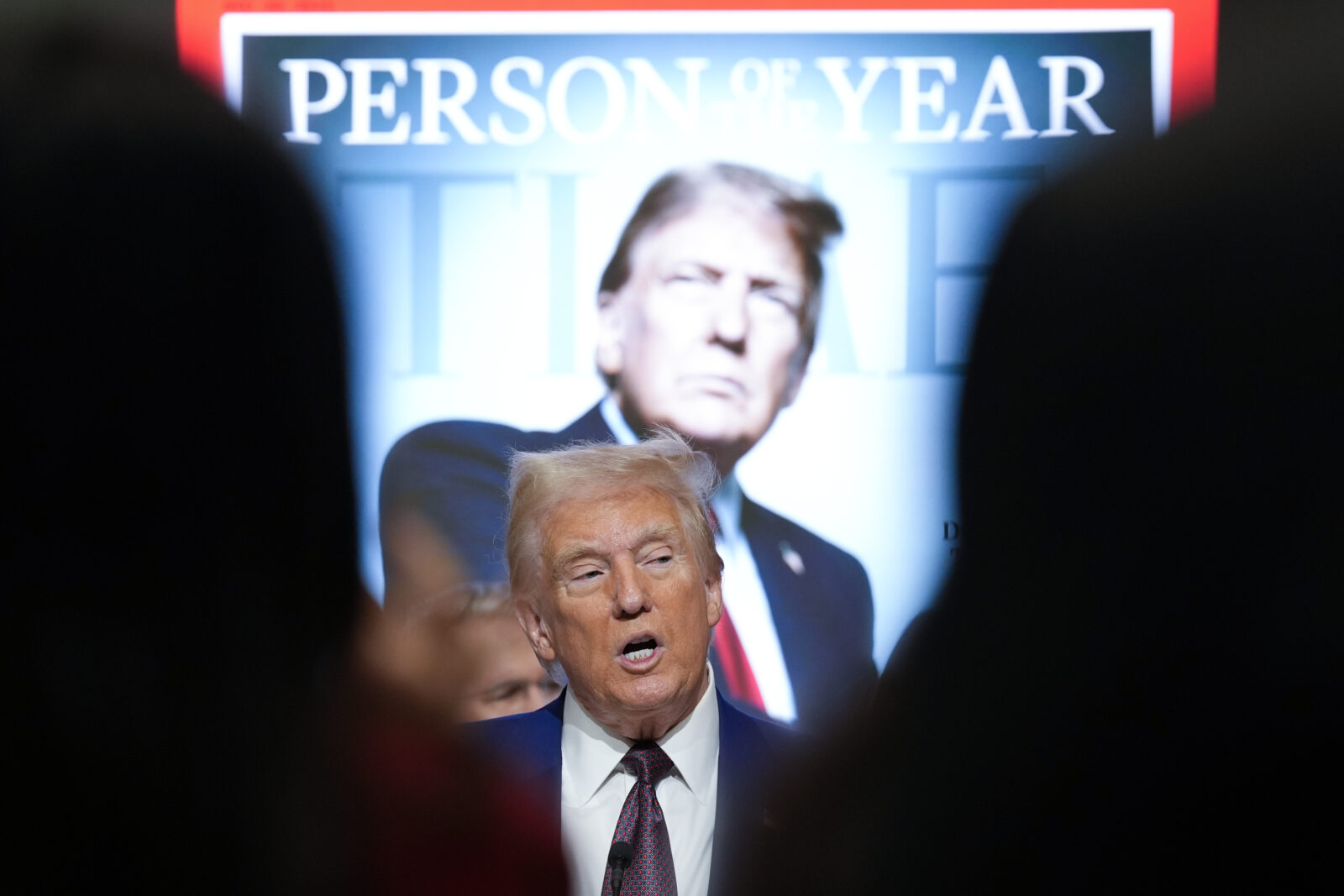
WEST PALM BEACH, Fla. (AP) — President-elect Donald Trump has invited Chinese President Xi Jinping and other world leaders to his inauguration next month — an unorthodox move that would fold U.S. allies and adversaries into a very American political tradition.
Trump said Thursday during an appearance at the New York Stock Exchange, where he was ringing the opening bell to kick off trading for the day, that he’s been “thinking about inviting certain people to the inauguration” without referring to any specific individuals.
“And some people said, ‘Wow, that’s a little risky, isn’t it?’” Trump said. “And I said, ‘Maybe it is. We’ll see. We’ll see what happens.’ But we like to take little chances.”
His comments came soon after his incoming White House press secretary, Karoline Leavitt, confirmed during a Thursday morning appearance on “Fox & Friends” that Trump had invited Xi and other world leaders to attend his inauguration. No head of state has previously made an official visit to the U.S. for the inauguration, according to State Department historical records.
The unprecedented invitations come at a moment when much of the world is bracing for what comes next when Trump and his “America First” worldview return to the White House.
The president-elect has vowed to levy massive tariffs against the United States’ chief economic competitor, China, as well as neighbors Canada and Mexico unless those countries do more to reduce illegal immigration and the flow of illegal drugs such as fentanyl into the United States.
Trump’s also pledged to move quickly to end Russia’s nearly three-year war in Ukraine and press NATO allies who are spending less than 2% of their GDP on defense to step up or risk the United States not coming to their defense, as required by the transatlantic alliance’s treaty, should they come under attack.
“We’ve been talking and discussing with President Xi some things, and others, other world leaders, and I think we’re going to do very well all around,” Trump said. “We’ve been abused as a country. We’ve been badly abused from an economic standpoint, I think, and even militarily, you know, we put up all the money, they put up nothing, and then they abuse us on the economy. And we just can’t let that happen.”
Xi is likely to see the invitation as too risky to accept, and the gesture from Trump may have little bearing on the increasingly competitive ties between the two nations as the White House changes hands, experts say.
Danny Russel, vice president for international security and diplomacy at the Asia Society Policy Institute, said Xi would not allow himself to “be reduced to the status of a mere guest celebrating the triumph of a foreign leader — the U.S. president, no less.”
US adversaries and competitors
Still, Leavitt saw it as a plus.
“This is an example of President Trump creating an open dialogue with leaders of countries that are not just our allies, but our adversaries and our competitors, too,” she said on “Fox & Friends.” “We saw this in his first term. He got a lot of criticism for it, but it led to peace around this world. He is willing to talk to anyone, and he will always put America’s interest first.”
Asked at a Chinese Foreign Ministry briefing Thursday about Trump’s invitation, spokesperson Mao Ning responded, “I have nothing to share at present.”
Leavitt did not detail which leaders beyond Xi have been invited.
But Trump’s decision to invite Xi, in particular, squares with his belief that foreign policy — much like a business negotiation — should be carried out with carrots and sticks to get the United States’ opponents to operate closer to his administration’s preferred terms.
Jim Bendat, a historian and author of “Democracy’s Big Day: The Inauguration of Our President,” said he was not aware of a previous U.S. inauguration attended by a foreign head of state.
“It’s not necessarily a bad thing to invite foreign leaders to attend,” Bendat said. “But it sure would make more sense to invite an ally before an adversary.”
Edward Frantz, a presidential historian at the University of Indianapolis, said the invitation helps Trump burnish his “dealmaker and savvy businessman” brand.
“I could see why he might like the optics,” Frantz said. “But from the standpoint of American values, it seems shockingly cavalier.”
White House officials said it was up to Trump to decide whom he invites to the inauguration.
“I would just say, without doubt, it’s the single most consequential bilateral relationship that the United States has in the world,” White House national security spokesperson John Kirby said. “It is a relationship both fraught with peril and responsibility.”
It’s unclear which leaders, if any, might show.
A top aide to Hungarian President Viktor Orban, one of Trump’s most vocal supporters on the world stage, said Thursday that Orban isn’t slated to attend the inauguration.
“There is no such plan, at least for the time being,” said Gergely Gulyás, Orban’s chief of staff.
The nationalist Hungarian leader is embraced by Trump but has faced isolation in Europe as he’s sought to undermine the European Union’s support for Ukraine, and routinely blocked, delayed or watered down the bloc’s efforts to provide weapons and funding and to sanction Moscow for its invasion. Orban recently met with Trump at Mar-a-Lago.
Chiefs of mission
Every country’s chief of mission to the United States will also be invited, according to a Trump Inaugural Committee official who was not authorized to comment publicly and spoke on condition of anonymity. Such invitations to diplomats stationed in Washington has been customary during past inaugurations.
Xi, during a meeting with President Joe Biden last month in Peru, urged the United States not to start a trade war.
“Make the wise choice,” Xi cautioned. “Keep exploring the right way for two major countries to get along well with each other.”
Canadian Prime Minister Justin Trudeau has also pushed back on Trump’s threats, warning that such tariffs would be perilous for the U.S. economy as well.
Trudeau earlier this week said Americans “are beginning to wake up to the real reality that tariffs on everything from Canada would make life a lot more expensive” and said he will retaliate if Trump goes ahead with them.
Trump responded by calling Canada a state and Trudeau the governor.
In addition to the tariff dispute, U.S.-China relations are strained over other issues, including what U.S. officials see as Beijing’s indirect support of Russia’s war on Ukraine.
The Biden administration says China has supported Russia with a surge in sales of dual-use components that help keep its military industrial base afloat.
U.S. officials also have expressed frustration with Beijing for not doing more to rein in North Korea’s support for the Russian war. China accounts for the vast majority of North Korea’s trade.
North Korean leader Kim Jong Un has dispatched thousands of troops to Russia to help repel Ukrainian forces from the Kursk border region. The North Koreans also have provided Russia with artillery and other munitions, according to U.S. and South Korean intelligence officials.
Trump’s Jan. 20 inauguration is set to take place a day after the U.S. deadline for ByteDance, the Chinese parent company of social media giant TikTok, to sell the social media app or face a ban in the United States.









